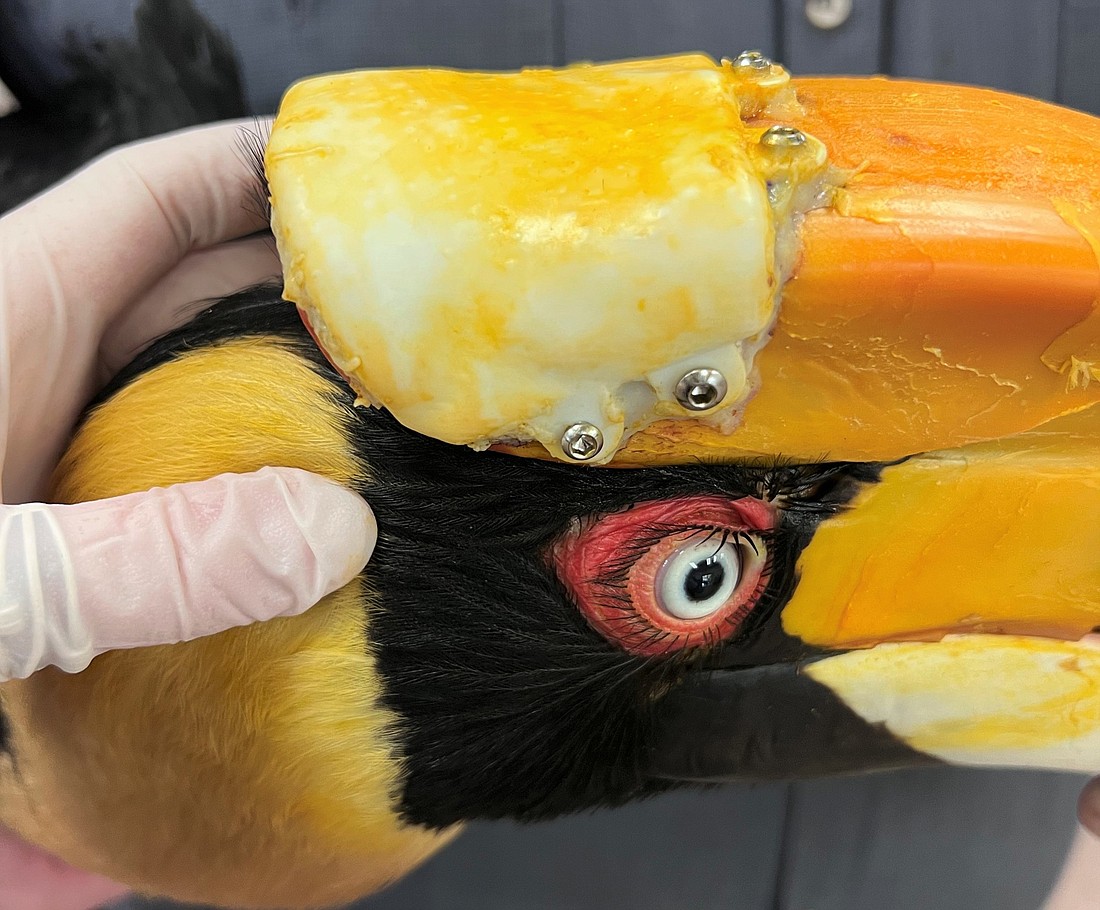- December 13, 2025
-
-
Loading

Loading

Crescent, a 25-year-old great Indian hornbill who resides at ZooTampa at Lowry Park, has been given a new, 3D-printed bone — and a new lease on life — thanks to a groundreaking, first-of-its kind collaboration between Massachusetts-based biomedical firm Formlabs, the University of South Florida Morsani College of Medicine’s Department of Radiology, Tampa General Hospital and the University of Florida College of Veterinary Medicine.
ZooTampa researchers, according to a news release, detected an unusual lesion at the back of Crescent’s casque, a bony extension of the bird’s skull. It indicated the presence of a form of skin cancer, known as squamous cell carcinoma, that’s usually fatal for hornbills. The condition can also affect humans but is easily treated and not nearly as deadly.